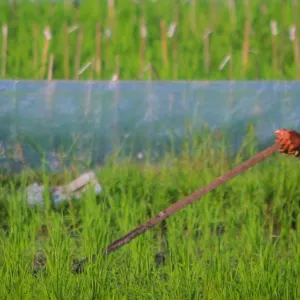IRRI’s Methane Accelerator for Southeast Asia (MASEA) Takes Off
Thailand (14 November 2024) – The International Rice Research Institute (IRRI) has launched an ambitious project aimed at transforming the environmental footprint of rice farming in Southeast Asia. The Methane Accelerator for Southeast Asia (MASEA), supported by the United States Agency for International Development (USAID), targets significant reductions in methane emissions from rice cultivation. Southeast Asia, the global hub for

IRRI’s Methane Accelerator for Southeast Asia (MASEA) Takes Off
Thailand (14 November 2024) – The International Rice Research Institute (IRRI) has launched an ambitious project aimed at transforming the environmental footprint of rice farming in Southeast Asia. The Methane Accelerator for Southeast Asia (MASEA), supported by the United States Agency for International Development (USAID), targets significant reductions in methane emissions from rice cultivation.
Southeast Asia, the global hub for rice production, is essential to food security and vulnerable to climate change impacts. Methane emissions from flooded rice fields contribute to global agricultural greenhouse gases. The MASEA project addresses this challenge by integrating scalable solutions to mitigate methane emissions while enhancing the climate resilience of smallholder farmers.
MASEA also aims to integrate farmers into carbon markets by unlocking financial benefits through climate-smart practices and bridging the gap between practicing environmental sustainability with economic incentives. The project is committed to overcoming high monitoring costs and logistical challenges and transforming agricultural practices across the region.
Farmer Engagement in Thailand
From 1 October to 15 December 2024, IRRI is conducting surveys with 400 rice farmers across five provinces: Phitsanulok, Kalasin, Suphan Buri, Phra Nakhon Si Ayutthaya, and Chai Nat. The goal is to gather critical data on the costs and benefits of methane-reducing technologies while exploring farmers’ attitudes toward integrating carbon markets into their practices.
From 13 to 14 November, surveys took place in Phra Nakhon Si Ayutthaya province, where IRRI and its collaborator Kasetsart University engaged 40 farmers. The surveys also included choice modeling discussions to assess carbon price supply elasticities and farmers’ preferences regarding payment modalities for carbon credits. By understanding farmers’ perspectives on risk and reward, MASEA aims to design interventions that align environmental goals with the economic needs of rice farming.

